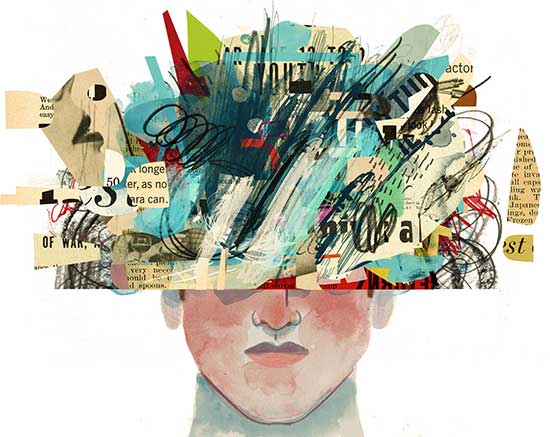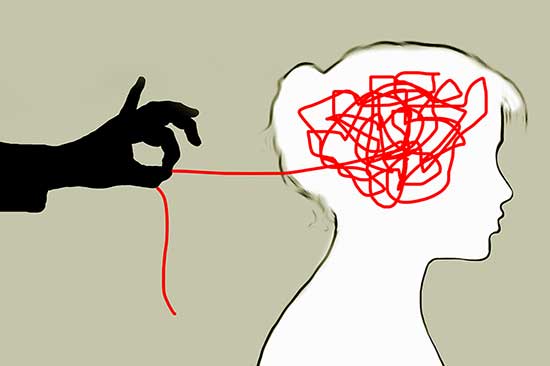We all always focus on the leaves of a tree and never go deep in its roots. Have you wondered what instigates mental disorders causing symptoms like stress and depression? Have you ever thought which hormone leads to cause stress and depression? No? In this article, we will discuss the relationship between emotional brain formation, stress, and depression.
Let’s talk about our brain !!!
The emotional brain formation
Stress is the current epidemic.
 The human body is not meant to be in a state of constant stress and depression, that is quite important to stay healthy. Disturbing data reveals that 90% of doctor appointments are for stress-related illnesses. Stress and depression not only make you weaker to everything from cancer to the common cold but also it poses negative impacts on your brain.
The human body is not meant to be in a state of constant stress and depression, that is quite important to stay healthy. Disturbing data reveals that 90% of doctor appointments are for stress-related illnesses. Stress and depression not only make you weaker to everything from cancer to the common cold but also it poses negative impacts on your brain.
There are two kinds of stress, acute stress, and chronic stress. Acute stress is the response to instant intimidation, commonly known as the “fight or flight” response.
Once the threat has crossed, your levels of stress hormones turn to normal with no constant effects. Some degree of acute stress is even considered useful as it primes your brain for peak performance.
Epinephrine, known as adrenaline and norepinephrine, are stress hormones produced based on needs in times of extreme arousal.
 They help you with thinking and moving fast in an emergency. In the right condition, they can lead to saving your life. They don’t remain in the body and disappear as immediately as they were produced. Cortisol, on the other hand, runs through your system throughout the day, and that makes it more serious.
They help you with thinking and moving fast in an emergency. In the right condition, they can lead to saving your life. They don’t remain in the body and disappear as immediately as they were produced. Cortisol, on the other hand, runs through your system throughout the day, and that makes it more serious.
This stress hormone has been named as a public enemy. Excess cortisol causes physical health problems that include weight gain, digestive problems, heart disease, hormone imbalances, osteoporosis, cancer, and diabetes. Cortisol takes equally severe damage to your mental health by adjusting the structure and function of your brain.
 Brain in the state of stress and depression
Brain in the state of stress and depression
The brains of people suffering from stress and depression have been found to swell dramatically. Specialists say the unusual activity may conceal part of the damage depression can cause.
Researchers say the effects of depression and stress on the volume of people’s brains, have determined that depression by itself induces the brain to shrink. However, when joined with anxiety, as is often the case, the disorder causes one area of the brain to become significantly broader.
 The two separate areas of the brain are affected by diseases. The experts found that people who have depression have lower brain volumes in various areas of the brain, with the hippocampus, the part of the brain connected to memory and learning is significantly damaged. The smaller hippocampus is a dangerous factor for Alzheimer’s disease and may stimulate the development of dementia.
The two separate areas of the brain are affected by diseases. The experts found that people who have depression have lower brain volumes in various areas of the brain, with the hippocampus, the part of the brain connected to memory and learning is significantly damaged. The smaller hippocampus is a dangerous factor for Alzheimer’s disease and may stimulate the development of dementia.
However, when depression and stress happen together, it causes an increase in the size of the amygdala that is a part of the brain connected to emotions, and people who had depression and anxiety had less reduction in many other brain areas.
The experts indicate that the actual impact of depression on the brain has underrated due to the effect in the amygdala. Anxiety reduces the impact of depression on brain volume sizes by 3% on average, somewhat hiding the actual shrinking effects of depression. More research is required on how stress lessens the consequences of depression, but, for the amygdala, possibly anxiety leads to overactivity.
Disclaimer:
The information contained in this article is for educational and informational purposes only and is not intended as a health advice. We would ask you to consult a qualified professional or medical expert to gain additional knowledge before you choose to consume any product or perform any exercise.






